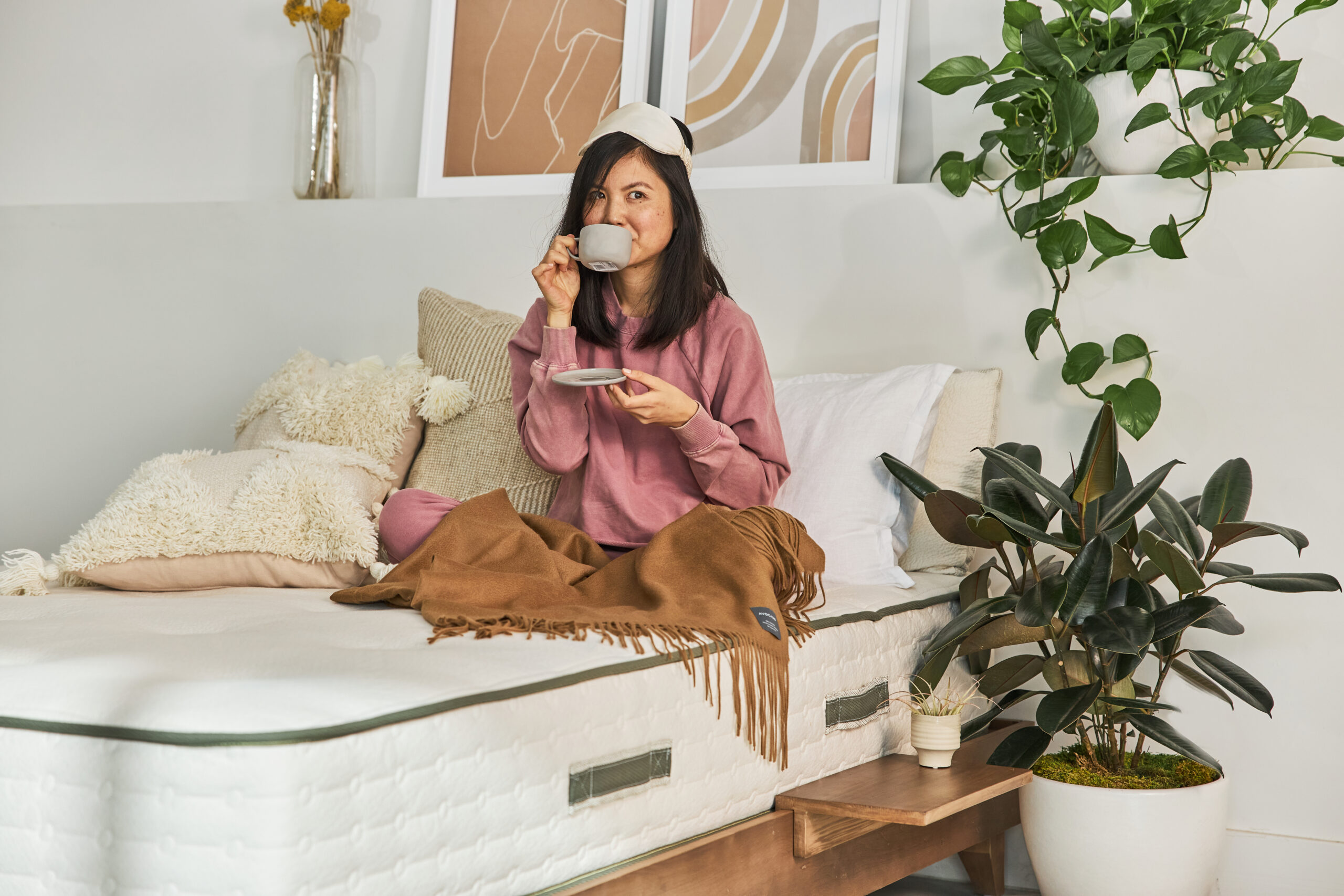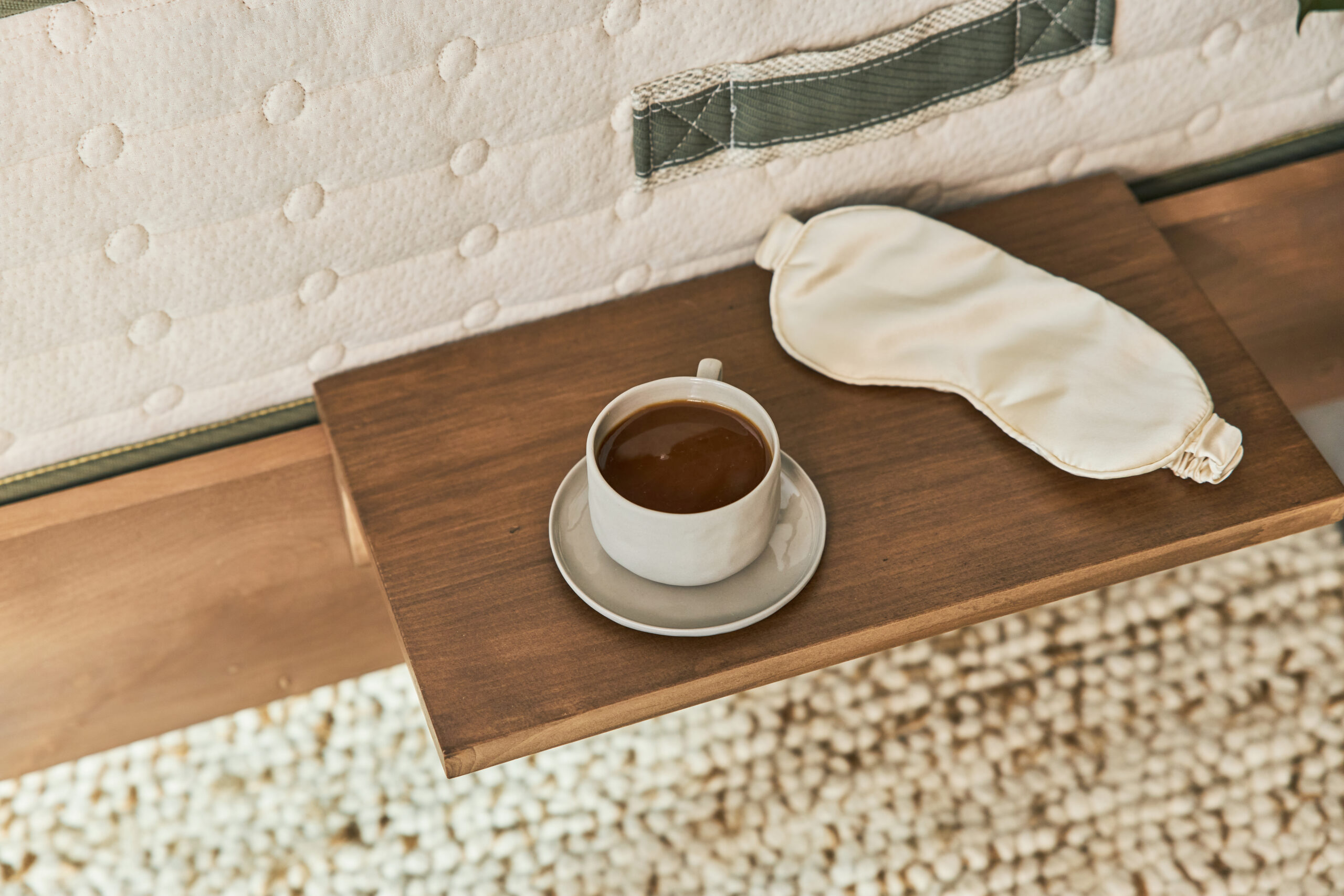Sleep deprivation doesn’t have to be the cost of your daily pick-me-up. Embrace mindful caffeine consumption.
The first sip of my morning matcha latte – with honey and a dash of cinnamon – signals the start of a new day. Beyond the gentle energy boost, this ritual serves as a quiet anchor and moment of mindfulness before my daily to-dos begin. While, for many, caffeine is a beloved companion that helps us perk up, it can also become a disruptive crutch.
According to a Sleep Foundation survey, over 60 percent of Americans enjoy at least one caffeinated beverage daily, whether a frothy latte, steaming mug of tea, bubbly soda, or punchy energy drink. Each holds a unique allure suitable for satisfying any palate, from the familiar comfort of classic flavors to trendy, new blends.
Yet, drinking too much caffeine, or at a time too late in the day, can mess with your sleep cycle, leaving you wired and restless, then groggy the next day. Here’s how to indulge in tasty energizers without sacrificing a good night’s sleep.
Read more: I Tried the Sleepy Girl Mocktail. I’ve Never Slept Better.
How caffeine impacts sleep
Drinking caffeine fends off fatigue and improves concentration, but it can linger in the evening and make it harder to fall asleep. You might also wake up more often, shrinking those precious deep and REM sleep cycles, where your body and mind truly recharge.
When your sleep quality suffers, the unpleasant aftermath includes daytime sleepiness, irritability, and slower reaction times. To stay awake, sooner or later, you’ll reach for more caffeinated drinks than usual, which isn’t a healthy substitute for sleep. In turn, you’ll likely set yourself up for another restless night.
How much is too much?
Now, this isn’t a PSA to ditch caffeine. Observational studies haven’t definitively proven that we need to banish moderate caffeine intake from our routines. The U.S. Food & Drug Administration (FDA) says up to 400mg daily, roughly four or five cups, generally won’t cause serious harm to adults. Anything more may put you in a red zone of pounding headaches, heightened anxiety, and digestive issues. Keep in mind your sensitivity to this stimulant is unique to you and based on genetics, age, metabolism, and if you have any health conditions.
The amount of caffeine in a beverage depends on how it’s prepared, including where the ingredients are grown and processed. If you order from a cafe or brew it at home, you likely won’t know the exact caffeine content. To keep track, here are the FDA guidelines for how much caffeine is typically in one cup:
- Soft drink (12 oz): 30 to 40 mg
- Green or black tea (8 oz): 30 to 50 mg
- Coffee (8 oz): 50 to 100 mg
- Energy drink (8 oz): 40 to 250 mg
Read more: How to Wake Up Energized

When to stop drinking caffeine
Because of caffeine’s energizing yet disruptive effects, studies recommend having your last sip no later than six hours before bedtime. If you’re like me and go to sleep around 9 pm., stop drinking caffeine by 3 pm.
This timing follows an average half-life measurement – the time it takes for something to decrease to half its original amount. Caffeine’s half-life varies significantly from person to person and can take 3 to 9 hours to diminish. So, the earlier you stop drinking it, the less it will affect your sleep.
How to cut back on caffeine
Instead of going cold turkey and risking the wrath of caffeine withdrawals, cut back gradually. Start by drinking one less cup each day, and supplement with natural energy boosters like natural sunlight, nourishing meals, exercise, more water, and power naps.
If you’re craving a cozy beverage later in the day, consider switching to a decaffeinated or caffeine-free drink. When a label says “decaf,” the caffeine is removed, but a small amount remains. If you want something with zero caffeine, choose a caffeine-free product like herbal tea, which will better support a restful night.
Ultimately, your relationship with caffeine is personal, and you can change it. Listen to your body, experiment, and make mindful choices so you can enjoy your daily fuel without straining your mind and body.

Read more: What Is Sleep Debt? Can You Pay It Off?
Have feedback on our story? Email [email protected] to let us know what you think!

Shop Pillows
The Essential Organic Pillow Collection
Gentle, breathable, non-toxic support.







